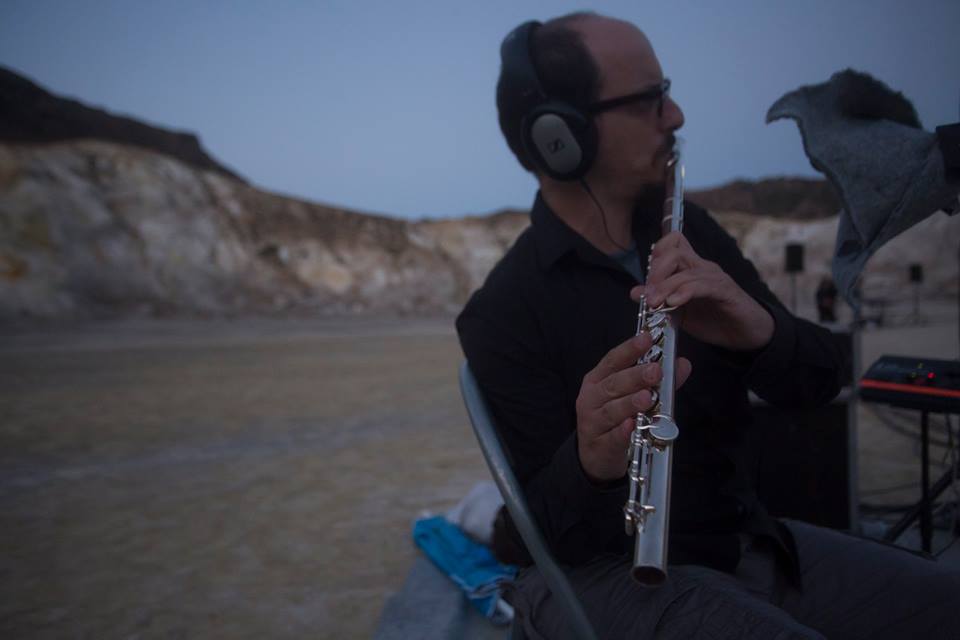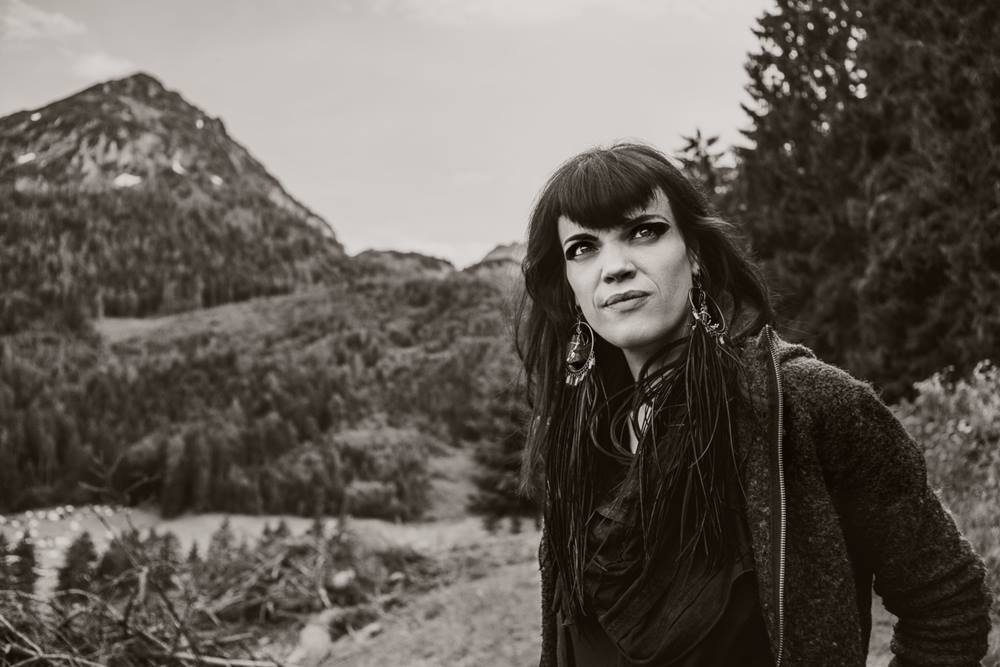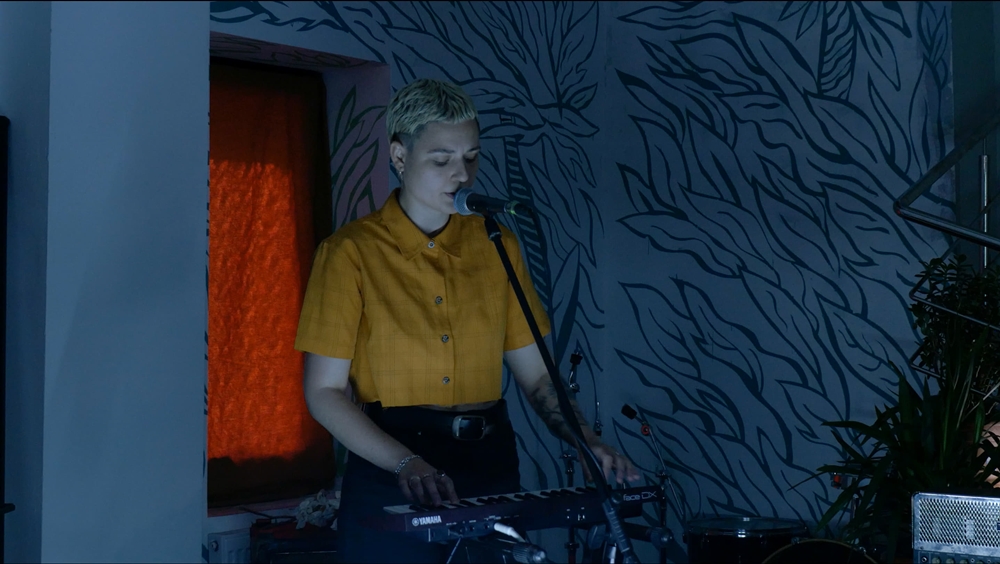Throughout history, Death, both phenomenon and character, has been a source of inspiration for many artists. Our friend, Stelios Romaliadis, tells us how Death became the leitmotif of the newest album Lüüp,“Canticles Of The Holy Scythe”.
We see death as the symbol of the constant renovation of the Cosmos.
CVLTARTES: Hello, old friend! We haven’t talked for a while already and meantime you have released a new album “Canticles Of The Holy Scythe”, where you have had a bunch of interesting collaborations. Before that, we have to mention that you pointed out only to artists from the underground music. Is this a way of promoting you a valuable culture or just a perfect match?
Stelios: Good to be back on CVLTARTES!
Well I am always looking for the most suitable musicians to bring the vision of the music to life. My first and only concern is the music and how to achieve the sound I have in mind. And I love being part of the underground music scene, the most sincere and dedicated people come from the underground scene. Again, on the new album, every piece of music has a different orchestration and different vocalists. Every vocalist brings his own personality and experience to the material. This is the first album in which I wrote all the material. So it is less collaborative than the previous albums but all the participants are crucial to achieve the atmosphere and sound of the album.
Let’s focus a little about the concept and the album’s dark shades. What should I experience while listening to this death dedicated to album?
Although I do not want to provide any guidelines that lead to limitations in experiencing the album, I will speak of the lyrical concept. The album is a journey towards reconciliation with Death as philosophical symbolism. The scene is set by the first track “Why Are the Mountains Black” where the archaic folk polyphonic song speaks about the fear of Death as seen through folk tradition. It is a mourning song which symbolizes Death as the inevitable end of an era.
Then with “9°=2° (Κόγξ ὀμ Πὰξ)” we enter a ritual where ancient texts are poetically written by my friend Fra.M.E and through which we make contact and become familiar with dark forces of our self and of the cosmos, the archetype of negativity and fear.
“The Greater Holy Assembly (Ha Idra Rabba Qadisha)”: This poem by Fra.M.E. is influenced from a guarding ritual of the teachings of the Hermetic Kabbalah. You guard yourself and start your cosmic journey for enlightenment diving into cosmic abyss where you transform into a new self.
After the preparation of the “Apparition of Death” comes “Stibium (Triumph of Death)” where we see Death reciting that we should “bury the black corpse of tradition”, “burn the Holy temple of Solomon” and we see death as the symbol of the constant renovation of the Cosmos who is always moving forward, the sacrifice we must endure that will lead to reintegration upon a higher level of expression and existence.
And then with the final track “Зона (Mors Consolatrix)” comes catharsis were we transcend to a higher level of consciousness, as if in a dream we pass to a different world, where we hear an inner, unknown language singing in this new state of englightment.
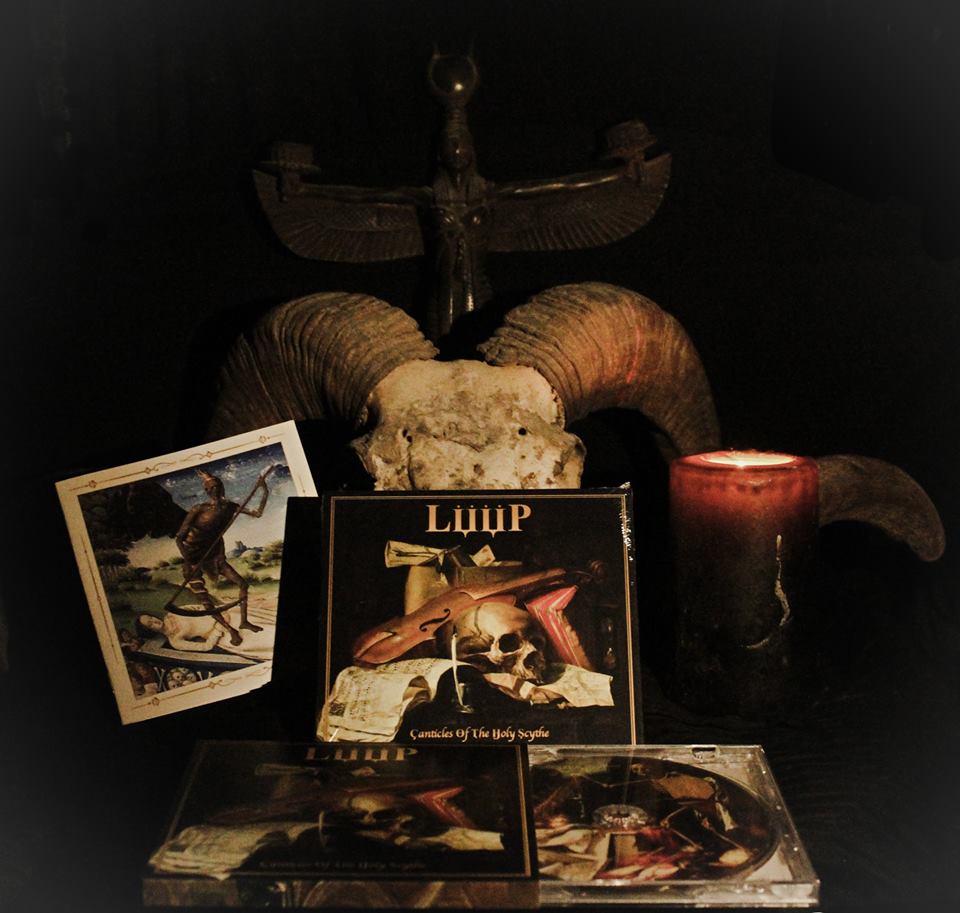
Is Death another taboo topic? We’re referring to it only as a personal, almost intimate issue. Do you think we could get used to the idea of death if the life would be any way easier or more beautiful? Why?
For me (the symbolism of) Death is psychologically associated with the fear of change, the fear of the unknown. Change, trying new things/experiences, is for me the whole point, so maybe if we could be more open to change, maybe we could see the symbolism of Death from a different aspect – being a positive thing, the painful but inevitable renewal in life. I am not saying I have overcome these issues, but always trying to go to this direction.
Balkan cultures, most of them orthodox, see death as a tragic experience and I’m thinking here about their habits and edges. Were you ever influenced by these aspects? Or is it something in particular that inspired your work?
The album is inspired mainly by Occult Philosophy, to observe, to perceive and understand the world in a way that all things are related to each other and all things come from the same source, the revelation that our inner self has analogy with the whole cosmos and that Death is nothing but a transition to a higher level of existence and I don’t mean that in any way of the false heaven/hell concept. Folk tradition has inspired me as well – how humanity has portrayed Death in art and society through the centuries.
Do you think religion has any point nowadays in a world where science has developed so fast with its discoveries and technologies?
Organized religion is taking advantage of the perpetual human need for faith in something higher that gives hope and purpose. We live in such a fucked up world with so many problems and oppression, and anything that helps people through is ok for me as long as it doesn’t interfere or gets offended with different opinions. Any dogmatic preaching of how to live our lives is wrong for me. Every person has its own inner truth and faith is a very personal path. Religions are rotting, usually nursing the most conservative and backward thinking.
There are some cultures that preserved their authenticity pretty well, especially on this side of Europe. Do you consider this will get lost over time, taking into account that some artists deny their origins in order to appear more Western-like? What should be done?
Tradition (or authenticity) is dead if it does not allow to be influenced and progress from contemporary and future generations. That is the essence of tradition for me: to give a heritage to future generations in order for them to enhance and develop it further. Tradition is a living “line” that connects us with the past and helps us progress, but if we make it something static and dead and place it in a museum then the ties will be cut. So for me tradition should be an ever evolving living organism.
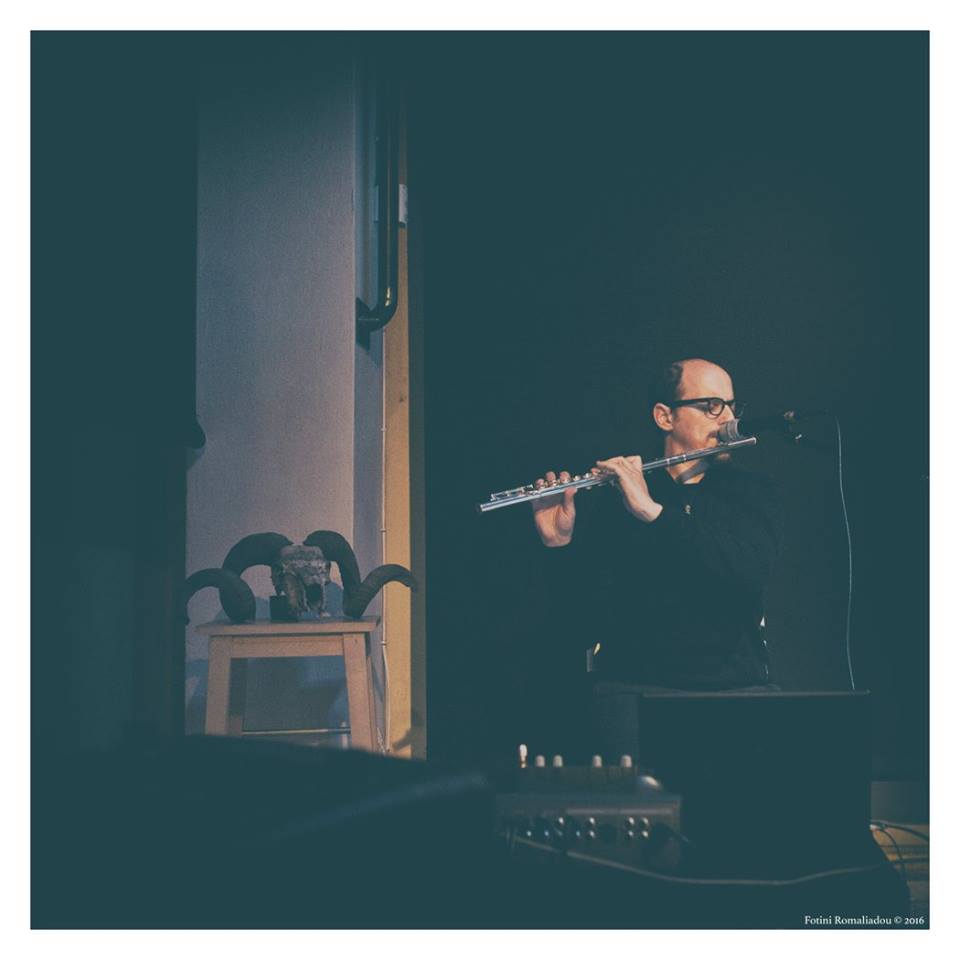
Have you considered going even further with this spiritual exploration and make like a second “Canticles of The Holy Scythe”, but with artists from Romania, Bulgaria or Serbia?
It is one of my future goals, to explore further the dark side of the Balkan folk heritage and dive deeper into the music of these areas. And hopefully collaborate with artists of the mentioned countries. Balkan folk is my favorite folk music. In order to compose the vocal parts of “Why Are the Mountains Black” apart from Greek polyphonic singing I studied an essay from Marinela Mahony a student of Pretoria University that I found on the internet called “An Investigation of the polyphonic folk music of Albania”.
Isn’t it odd that many websites or rock/metal blogs have flocked to write reviews about this material, where it seems to me that only Sakis Tolis and Bjørn (Aldrahn) Dencker have something to do with this metal area? At least I’m seeing this as a chamber music and I would exhibit it in a classic music festival. Am I wrong?
I cannot imagine anyone else doing such an extraordinary vocal performance as Sakis Tolis and Bjørn Dencker did on their tracks. They happen to be two of my heroes since the first time I listened to black metal. I grew up with extreme metal and it has influenced me deeply and on many levels for this album – harmony, themes/riffs, song structures, rhythm, atmosphere. I tried to find the essence of extreme metal and present it without the typical electric orchestration, and to achieve the same heaviness and dissonance with acoustic orchestration instead. So it’s not only the presence of these two metal legends that has an association with metal on the album. That metal influence was appreciated by the great visionary Luciano Gaglio who operates I, Voidhanger records and he agreed on releasing it. It is a risk that he took releasing this acoustic album on his label and I thank him deeply.
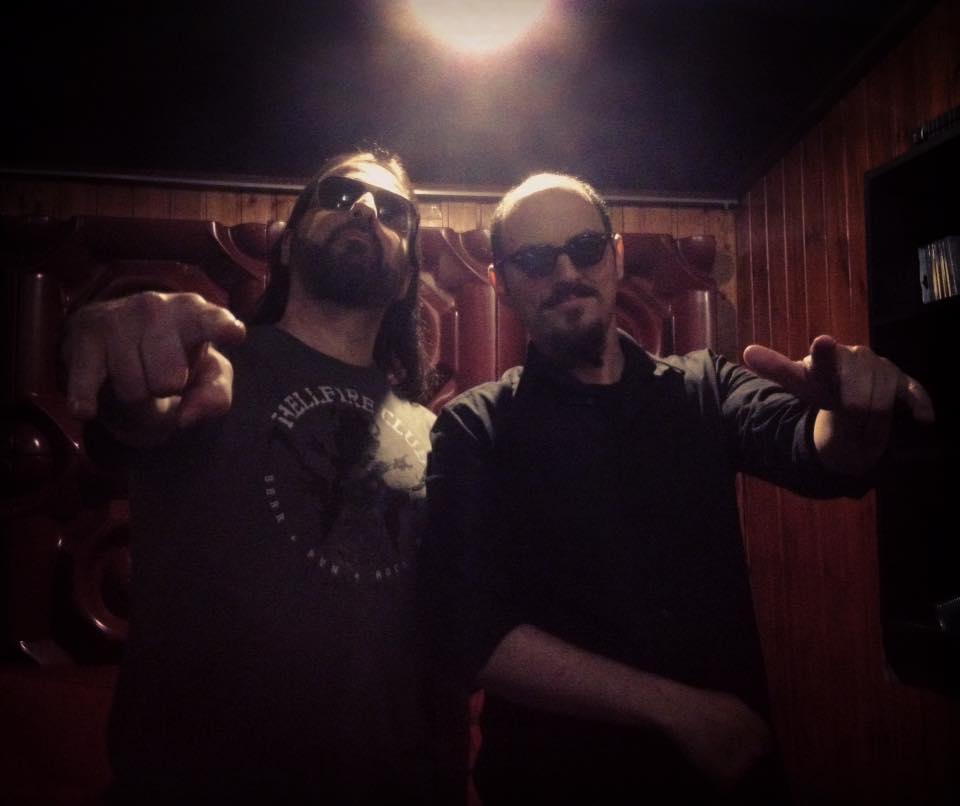
Is there any intention to perform this album live? How would the best place/landscape for a more complex experience look like?
Yes, we are planning to arrange a concert with most participants for the end of 2018, although it is a very difficult task to organize, hopefully we will manage. The perfect set for this album presentation is a dark stage ornamented with ritualistic objects and burning incense.
What does an artist do after he reveals his latest creation? Does he work on another one, wait quietly for criticism?
Usually there is a big gap between finishing the album and actually see the release of it, so, most of the times I am already working on new and different, or contrary, keeping a distance from composing and think about what areas of music would I experiment with. I am very strict with myself when writing material so the published music has been worked in every detail, so any criticism will not be as tough as the one I do to myself.
Thank you for the interview
You can follow Lüüp on: website | bandcamp
Cover photo: (c) Pinelopi Gerasimou
